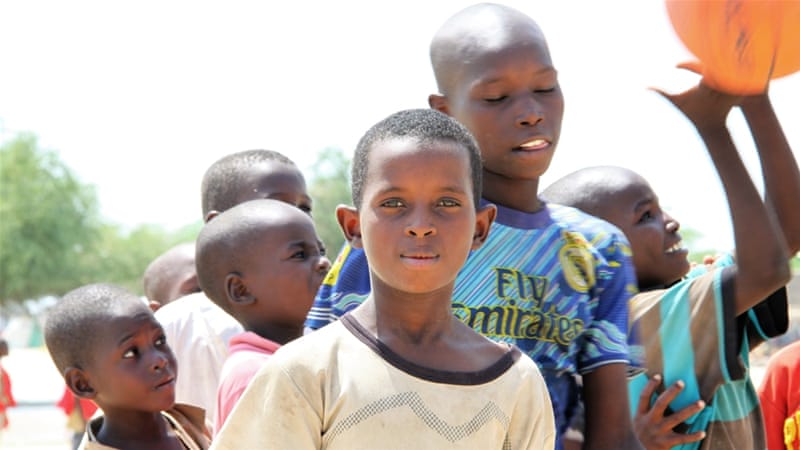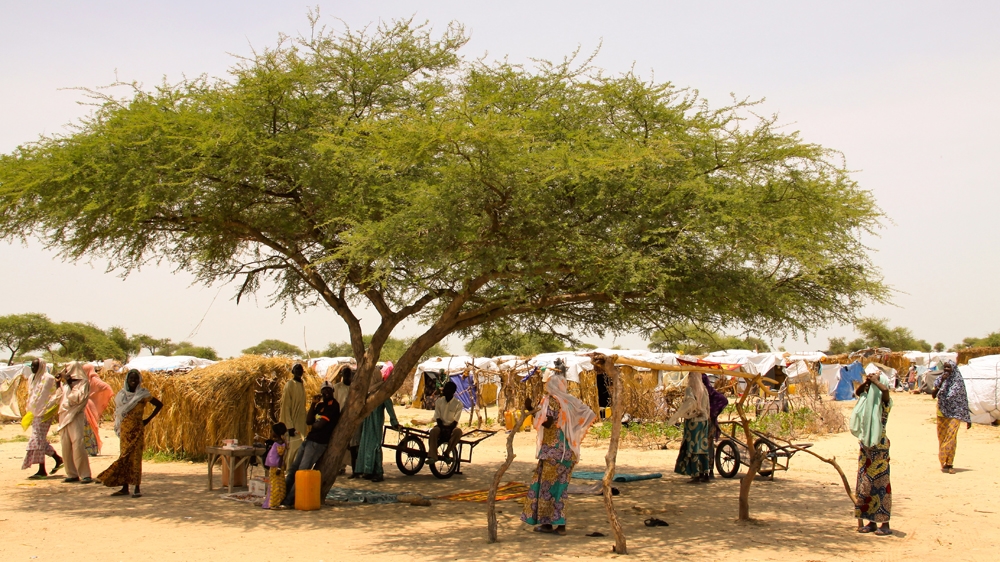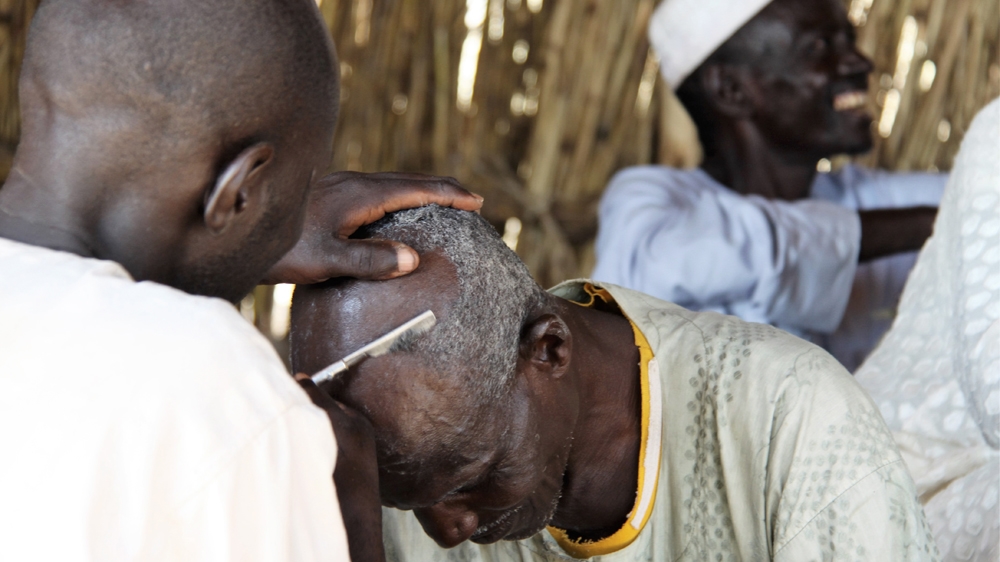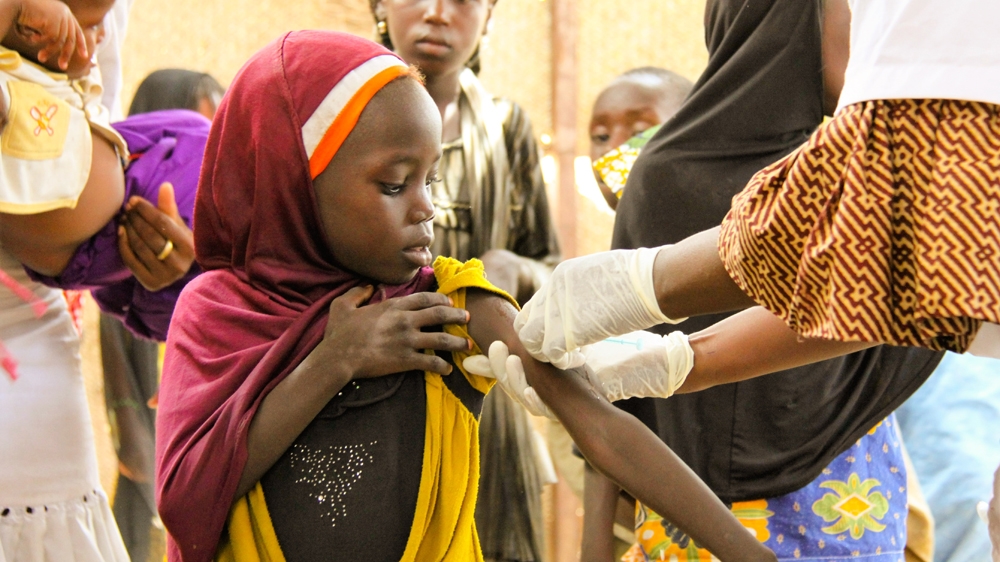
After being forced to flee their homes, witnessing brutal violence and the destruction of their communities, many in northeastern Nigeria are now facing another pressing risk — severe malnutrition and even starvation.
It's estimated that some 2.6 million people have been made homeless by the Islamist militant group Boko Haram, as they waged their seven-year long insurgency. People forced to flee headed in whichever direction was safe at the time.
Some two million have fled internally within Nigeria, moving to bigger cities in the northeast such as Maiduguri in Borno state or Yola in Adamawa state. Some fled south, or across borders into neighbouring countries.
Most crammed in with family, friends or distant relatives.
About 10 per cent, including the many unaccompanied children who saw their families slaughtered, have sought refuge in official and unofficial camps for the internally displaced.

Warnings have coming for months, with one aid agency after another expressing concern about the scale of this crisis and looming famine.
Millions of people in Nigeria need food assistance, the UN says. In Borno state alone, more than 240,000 children under the age of five are facing severe acute malnutrition.
For 65,000 people in the hard-hit north the risk is even greater — famine-like conditions and the risk of death.
Need 'will only increase'
Ghilda Chrabieh, director of humanitarian programs for Mercy Corps in Nigeria, says the situation could be particularly dire in places yet unreachable due to ongoing fighting and insecurity.
"We are projecting that the numbers of people in need will only increase as we start to access those areas."
President Muhammadu Buhari — who didn't mention the looming famine his country faces in a recent speech for Nigeria's Independence Day celebrations — recently spoke about the scope of the problem that comes with such a massive displacement of people, including many women and children.
"It is weighing heavily on government," Buhari said in a statement, noting that many of the children displaced by conflict and crises don't know their parents or where they come from.
"It is weighing heavily on government," Buhari said in a statement, noting that many of the children displaced by conflict and crises don't know their parents or where they come from.
The statement came after a meeting with Peter Maurer, president of the International Committee of the Red Cross.
Maurer has described the situation in Nigeria and neighbouring Niger as "a forgotten crisis."
Speaking in an ICRC video released via social media, he said this is "despite the fact that it is one of the largest ICRC operations in the world," adding that "people outside of Niger, outside of the Lake Chad region do not really offer the attention which this conflict deserves."
'Catastrophic' situation for many
The Mercy Corps director says organizations know that "people will need life-saving aid," with food and medical care to deal with malnutrition as a first priority.
"Based on the conditions we've seen as we've gained access, and based on many reports from agencies in locations like Bama, Banki, Konduga and Monguno, we know the situation is catastrophic," Chrabieh says.

Mercy Corps has been working in the town of Damboa, which was repeatedly hit by Boko Haram attacks. In 2014, there were reports that 95 per cent of the town had been destroyed, with burnt bodies left littering the charred remains of the marketplace.
The U.S.-based charity said 97 per cent of people they interviewed in Damboa reported that they were unable to afford to buy any food for the past four weeks.
The Nigerian government continues to tell people who fled the violence that they should return home to liberated towns and villages and rebuild their lives, but Boko Haram is still active in some areas and a feeling of insecurity has kept many away.
And so, hundreds of thousands of displaced people continue to lean on host families, or pour into makeshift camps for the displaced — and resources are being stretched to their limits.

Basic services such as health care, clean water and sanitation are already poor and there are concerns about the spread of disease.
Nigeria had gone two years without any reported polio cases but three have now been confirmed in Borno state and with poor drainage and stagnant water during rainy season deaths from malaria and cholera have risen.
This crisis though is not just affecting northeast Nigeria. Across the borders into Chad, Niger and Cameroon the same scenarios of hunger are being witnessed.
Some aid agencies like UNICEF have already warned that this crisis is now too big for one single government or charity to deal with alone.
As the country director of Mercy Corps Iveta Ouvry said: "This is not a crisis that will be solved with one silver-bullet solution … Put simply, the world cannot afford to wait another moment to take action."
SOURCE:cbc.ca







